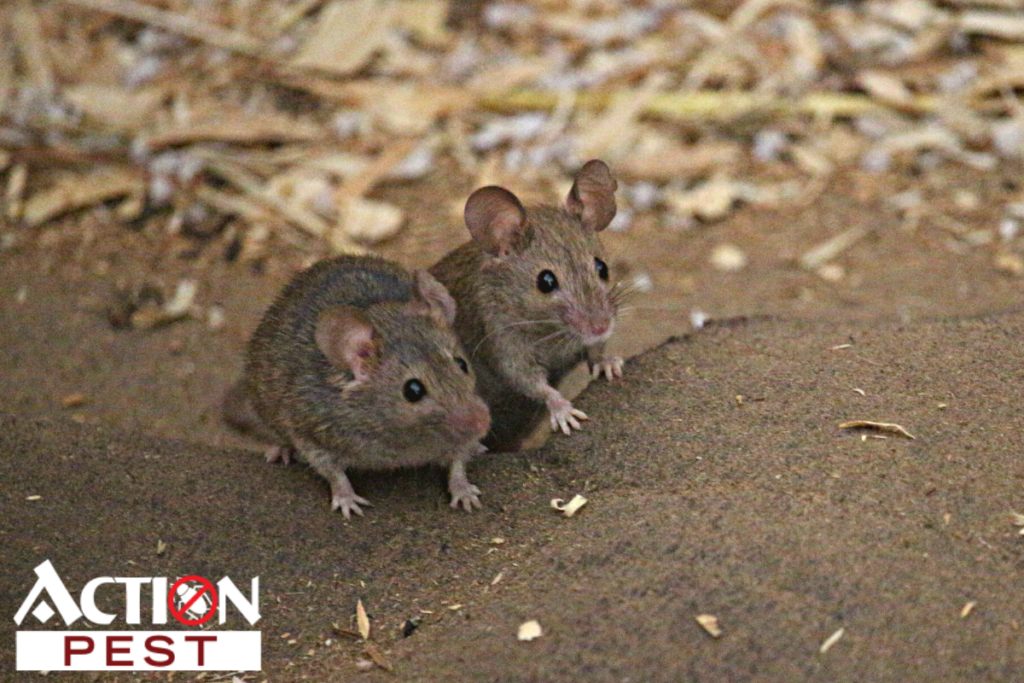
Rat or mice infestations comes with a lot of risks. The most immediate concern for most people is property damage. It goes without saying that mice cause structural damages to homes, contaminate food and chew up clothing and other materials. Having said that, what most people don’t realize is the fact that rodents cause more than just property damage.
These unwanted occupants in our homes carry diseases that can pass on to humans. As a matter of fact, rats are known to carry more than 35 diseases that pose health risks to humans. This article will shed some light on some of the common rodent-related diseases. For more information, keep reading!
How Do You Get Diseases From Rodents?
To start off, rats and mice will never meet your expectations as far as cleanliness is concerned. Being around them could easily put your health at risk for numerous diseases. So how exactly do rodents transmit diseases to humans?
Through Their Waste
If you do have a rodent in your home, you will probably come across rodent fecal matter at one point or another. What you should know is that rat dropping will easily make you sick, the same goes for urine. Oftentimes you’ll find rodent urine in places where they’ve decided to mark their territories. You should know that you can catch diseases from mice waste even if you are careful not to touch them. To learn more about how to properly clean up rodent waste, click here.
From Other Pests
Rodents like mice and rats are just like any other wild animal. Being in the outdoors, rodents are susceptible to their own pests. Rodents can carry pests that have hitched a ride onto their body into your homes. Some of these pests carry even more diseases that can be transmitted along with other issues.
For example, the Bubonic plague is transmitted by fleas that have been found on mice’s skin and fur. Not to mention, those pests that they bring in can lead to a whole other infestation. This is a great concern to homeowners and especially those who have pets.
Through Bites
Rodents don’t usually tend to bite unless they’re experiencing some kind of threat. However, if you’re unlucky enough to get bitten by a rodent such as a rat, then you are likely to catch the rat-bite fever. Bites transmit diseases through saliva. But what’s worse is that you don’t even have to get bitten to contract the disease. Just touching a dead mouse that has been infected or eating and drinking foods that have been contaminated by rats could potentially expose you to the disease.
Common Rodent Related Diseases
Rodent-related diseases are not as common as other diseases which makes people complacent when it comes to getting rid of these pests. But knowledge is power — the more you know the more you’ll be able to protect yourselves. Here are some common diseases that come from rodents.
Hantavirus
This disease was first discovered in the southwest part of the United States. Predominantly transmitted through deers, white-footed rats, cotton rats, and also rice rats; the Sin Nombre Hantavirus. Similar to other rodent-related diseases, the Hantavirus is not common but does cause kidney, respiratory, and blood ailments in humans. Through mouse droppings, urine and also stirred up nesting material — it can cause the disease to be airborne and transmitted to human beings. Symptoms begin as early as one week post-infection and the related symptoms include the following;
- Abdominal pain
- Dizziness
- Fatigue
- Muscle pain
- Fever
Lymphocytic Choriomeningitis LCM
The Lymphocytic Choriomeningitis Virus (LCMV) is what causes this viral disease. Predominantly found in mice, this particular disease has been found in approximately 5% of all house mice. The mode of transmission for LCMV is similar to the Hantavirus disease. It mainly occurs by coming into contact with mouse saliva, dropping or shuffling the nest of infected mice. Inhaling the contents, or even exposing broken skin can transmit the disease. The LCMV infection occurs in two stages where the first stage causes symptoms like:
- Muscle aches
- Loss of appetite
- Nausea
- Fever
The second stage is more severe. Symptoms associated with the second stage includes:
- Sensory disturbance
- Meningitis
- meningoencephalitis
Plague
This infamous disease killed millions of people across Europe during the middle ages. The Plague doesn’t only affect humans but also other mammals as well. The bacteria Yersinia Pestis is what causes this disease. Transmission to humans results from handling a dead animal infected by the plague or a bite from an infected rodent flea. There are different types of plague that may infect humans. Here are the main symptoms;
- Fever
- Chills
- Extreme weakness
Tularemia
Unfortunately, this rare disease affects both animals and humans. Oftentimes, rodents infected with Tularemia die in huge numbers, especially rabbits. Ingesting water and food contaminated with the virus is how humans can get the disease. There are different forms of this disease. However, most cases are easily treated when caught early on. Often the mode of infection will determine the symptoms you experience but the most common symptom is fever. Other symptoms include:
- Skin ulcers
- Swollen & painful lymph glands
- Inflamed eyes
- Pneumonia
- Throat & mouth sores
Conclusion – Rodent Control With Action Pest
Next time you find a rodent in your home, make sure to take extra precautions! Action Pest advises that the only true way of staying clear of rodent-related diseases is to effectively control and remove pests around your home. However, pest control is easier said than done. If you are dealing with one or two mice then it is pretty easy to eliminate them. Set up a few traps and dispose of them carefully.
However, sometimes the infestations get out of hand and you have to get professional help. Action Pest is a pest control company here in Canada that specializes in rodent control and removal. Guaranteed to take care of your pest problems with 100% satisfaction. Give Action Pest a call and let us help you get rid of these pests for good. Contact Action Pest today!






